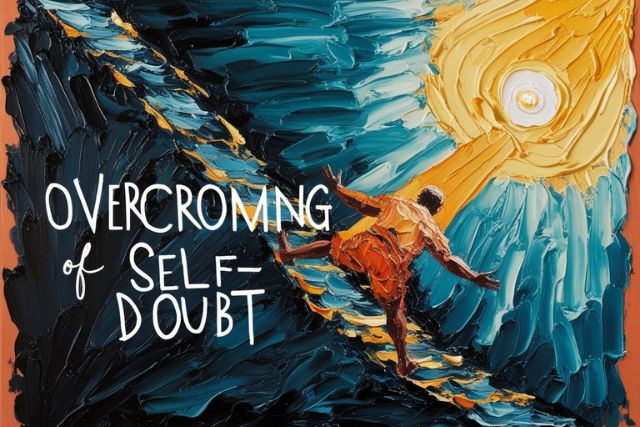Gratitude: A Powerful Tool for Personal Development
“Let us rise up and be thankful, for if we didn’t learn a lot today, at least we learned a little, and if we didn’t learn a little, at least we didn’t get sick, and if we got sick, at least we didn’t die; so, let us all be thankful.” – Buddha
The Power of Gratitude
Gratitude is a simple yet powerful emotion that plays a key role in personal growth. It involves recognizing and appreciating the positive elements in our lives, from everyday moments to significant milestones. When practiced regularly, gratitude can shift our mindset and transform our experiences, leading to greater fulfillment and joy.
Scientific studies have shown the psychological benefits of gratitude. Research from the Journal of Personality and Social Psychology has demonstrated that individuals who engage in regular gratitude practices report higher levels of happiness, lower stress, and enhanced overall well-being. Moreover, it strengthens emotional resilience, fosters better relationships, and creates a sense of contentment.
Psychologists note that gratitude helps reframe our focus from what we lack to what we have. This shift cultivates a mindset of abundance, which significantly contributes to personal growth and development, encouraging a more positive and optimistic outlook on life.
In this post, we’ll explore 15 practical ways to incorporate gratitude into your routine. These approaches range from daily journaling and mindfulness to expressing appreciation and practicing self-gratitude. By integrating these techniques into your life, you can foster deeper appreciation and enrich your personal development journey.
Daily Gratitude Journaling
Maintaining a daily gratitude journal is a powerful method for cultivating a positive mindset. By writing down things you are grateful for each day, you can shift your focus from negative to positive aspects of life, enhancing your overall well-being. This practice helps you recognize and appreciate the good in your life, which often goes unnoticed due to daily stressors and challenges.
To get started with gratitude journaling, set aside a specific time each day dedicated to this practice. Many find that either first thing in the morning or right before bed works best, as these times allow for reflection without distractions. Consistency is key, so choose a time that fits seamlessly into your routine.
Using prompts can also be helpful in guiding your journaling process. Consider questions like “What made you smile today?” or “What is one thing you appreciate about yourself?” These prompts can encourage deeper reflection and provide structure to your entries. Over time, you’ll develop a habit of recognizing and recording moments of gratitude, which can significantly impact your outlook on life.
External resources can further support your journaling journey. For instance, the Five Minute Journal offers a structured format with prompts designed to make gratitude journaling simple and effective. Additionally, various apps are available that allow you to log your daily gratitudes on-the-go, making it easier to maintain this positive habit even with a busy schedule.
Incorporating gratitude journaling into your daily routine can foster a more positive perspective and contribute to personal development. By consistently focusing on the good in your life, you can cultivate a sense of appreciation and contentment, which are foundational to personal growth and happiness.
Gratitude Meditation and Mindfulness
Gratitude meditation is a powerful practice that fosters mental well-being by encouraging individuals to focus on and appreciate the positive aspects of their lives. This form of meditation not only enhances emotional health but also cultivates a greater sense of contentment and joy. Engaging in gratitude meditation involves a series of steps designed to center the mind and elevate one’s awareness of the good things in life.
To perform this excercise, begin by finding a quiet and comfortable space where you can sit undisturbed. Close your eyes and take a few deep breaths, allowing your body to relax with each exhalation. Focus your attention on your breath, observing its natural rhythm without trying to change it. Once you feel centered, start to bring to mind the things you are grateful for. These can be specific people, experiences, or even small daily occurrences that bring you joy and comfort.
As you think of each item, visualize it in detail and allow yourself to feel the gratitude fully. Acknowledge the positive impact these aspects have on your life, and let the feeling of thankfulness fill your heart. If your mind starts to wander, gently bring your focus back to your breath and the next thing you are grateful for. Continue this practice for several minutes, gradually extending the duration as you become more comfortable with the process.
Mindfulness plays a crucial role in cultivating gratitude as it encourages present-moment awareness and a non-judgmental attitude towards one’s experiences. By being mindful, individuals can better recognize and appreciate the positive elements in their lives, fostering a deeper sense of gratitude. Consistent practice of mindfulness and gratitude meditation can lead to lasting improvements in mental well-being, including reduced stress, increased happiness, and enhanced emotional resilience.
For those new to gratitude meditation, guided sessions can be particularly helpful. Resources like Headspace and Calm offer a variety of guided gratitude meditations, providing structure and support as you develop your practice. Leveraging these tools can make it easier to incorporate gratitude meditation into your daily routine, ultimately enriching your personal development journey.
Expressing Gratitude to Others
Expressing gratitude to others is a fundamental practice that not only enhances personal well-being but also fortifies social bonds. Acknowledging the efforts and kindness of those around us can take various forms, from verbal affirmations to thoughtful actions. Simple acts like writing thank-you notes, giving compliments, or sincerely saying ‘thank you’ can make a significant difference in the lives of both the giver and the recipient.
For instance, writing a thank-you note to a colleague who assisted you with a project not only shows appreciation but also fosters a sense of camaraderie and mutual respect in the workplace. Compliments, when genuine, can uplift someone’s spirits and encourage a positive atmosphere. Even a straightforward ‘thank you’ can make someone feel valued and acknowledged, reinforcing their sense of belonging and significance.
Research underscores the profound impact expressing gratitude can have on relationships. A study published in the journal Emotion found that expressing gratitude strengthens social bonds. Participants who expressed gratitude experienced a notable increase in their relationship satisfaction and emotional closeness. Another research piece from the Journal of Social and Personal Relationships revealed that gratitude expressions can lead to higher levels of trust and loyalty, further solidifying interpersonal connections.
Moreover, expressing gratitude has been linked with numerous psychological benefits. It promotes a positive outlook, reduces stress levels, and enhances overall well-being. By making a conscious effort to thank others, we not only contribute to their happiness but also cultivate an environment where positivity and mutual support thrive.
Incorporating gratitude into daily interactions, whether through words or small gestures, can profoundly transform our social landscapes. It reminds us of the interconnectedness of human relationships and the power of appreciation in creating a harmonious and fulfilling life.
1. Keeping a Gratitude Journal
Maintaining a journal is one of the most effective ways to practice gratitude. By writing down things you are thankful for each day, you reinforce positive thinking patterns. This practice can enhance your overall well-being by helping you focus on the good aspects of your life. For more on how to start a gratitude journal, visit Greater Good Science Center.
2. Practicing Gratitude Meditation
Gratitude meditation involves focusing on feelings of thankfulness during your meditation sessions. This practice can reduce stress and increase feelings of happiness. Guided gratitude meditations are available on platforms like Headspace to help you get started.
3. Writing Thank-You Notes
Expressing gratitude through handwritten thank-you notes can strengthen your relationships. Taking the time to acknowledge someone’s kindness can foster a deeper connection and encourage a positive environment. For tips on writing impactful thank-you notes, check The Spruce.
4. Creating a Gratitude Jar
A gratitude jar is a simple yet powerful tool. Write down things you are grateful for on small pieces of paper and place them in the jar. Over time, reviewing these notes can serve as a reminder of the positive elements in your life. Learn how to make a gratitude jar at wikiHow.
5. Making a Gratitude Collage
Creating a visual representation of things you are thankful for can be both fun and therapeutic. Use photos, magazine cutouts, and other materials to build a collage. This visual reminder can boost your mood and serve as a daily source of inspiration. For ideas, see Pinterest.
6. Performing Acts of Kindness
Engaging in random acts of kindness is a practical way to express gratitude. Helping others can elevate your mood and foster a sense of community. Ideas for acts of kindness can be found on Random Acts of Kindness Foundation.
7. Reflecting on Positive Experiences
Taking time to reflect on positive experiences can help you appreciate the good moments in life. This practice involves recalling and savoring moments of joy and success. For more on the benefits of reflection, visit Psychology Today.
8. Using Gratitude Prompts
Gratitude prompts are questions or statements designed to evoke feelings of thankfulness. These prompts can be used in journaling or discussions to stimulate thoughts of thankfulness. Find a list of gratitude prompts at Daring to Live Fully.
9. Sharing Gratitude on Social Media
Sharing your gratitude publicly on social media can inspire others and create a positive online community. Posting about things you are thankful for can also reinforce your own practice of thankfulness. For ideas, follow hashtags like #GratitudeChallenge on Instagram.
10. Practicing Gratitude with Family
Incorporating gratitude practices into family routines can strengthen familial bonds. Activities such as sharing what you are grateful for during meals can promote a culture of thankfulness at home. For family gratitude activities, check Parents.
11. Setting Gratitude Reminders
Setting reminders on your phone or using sticky notes can prompt you to take a moment to reflect on what you are grateful for throughout the day. This practice can help integrate thankfulness into your daily routine. For more on setting effective reminders, visit Lifehack.
12. Celebrating Small Wins
Recognizing and celebrating small achievements can boost your motivation and happiness. Whether it’s completing a task or reaching a mini-goal, acknowledging these moments fosters a mindset of gratitude. For tips on celebrating small wins, visit The Ladders.
13. Volunteering
Volunteering your time and skills can provide a sense of purpose. Helping others in need can shift your focus from personal challenges to the positive impact you can make. For volunteer opportunities, check VolunteerMatch.
14. Practicing Self-Gratitude
Being thankful for yourself and your own achievements is crucial for self-esteem. Take time to acknowledge your efforts and successes, no matter how small. For more on self-gratitude, read MindBodyGreen.
15. Engaging in Gratitude Rituals
Incorporating rituals into your routine can help you maintain a consistent practice. Whether it’s a daily gratitude prayer or a weekly gratitude walk, rituals can provide structure and continuity. For more on gratitude rituals, visit Habits for Wellbeing.
Final Thoughts & A Call to Action
Practicing gratitude isn’t just about saying “thank you” — it’s a mindset shift that can transform your life. By incorporating these simple yet powerful practices into your daily routine, you can cultivate positivity, reduce stress, and enhance personal growth. The more you focus on appreciation, the more joy and fulfillment you’ll experience.
Ready to start your gratitude journey? Begin today by choosing one practice from this list and making it a daily habit. Share your favorite gratitude practice in the comments and inspire others on the path to a more grateful life!













